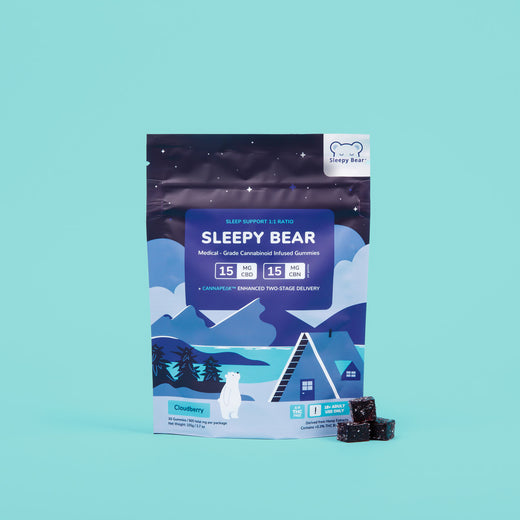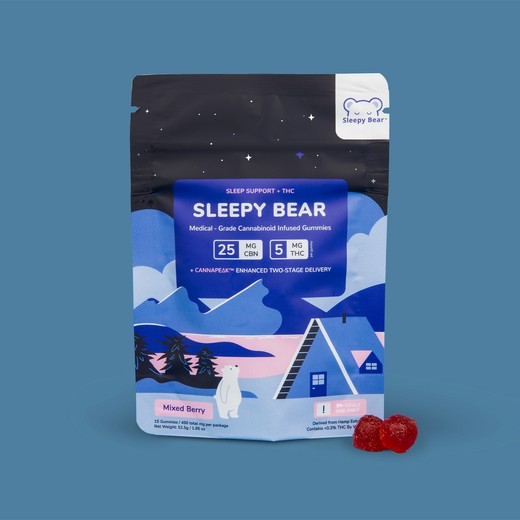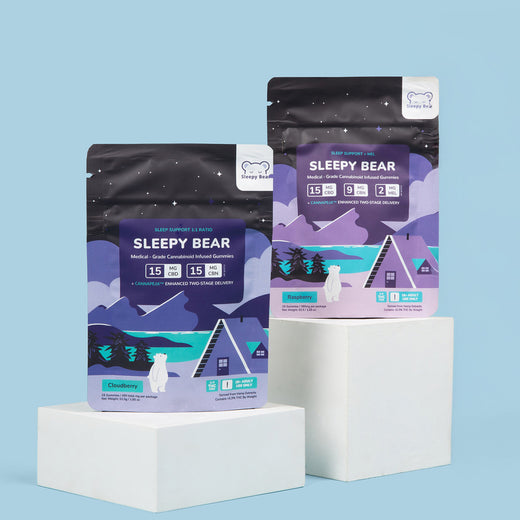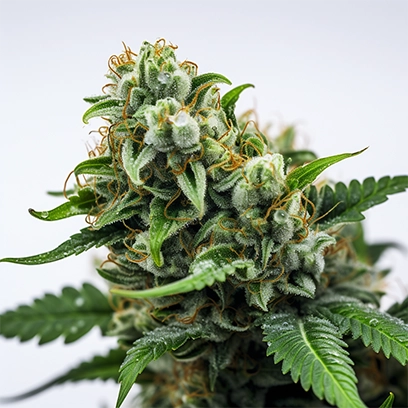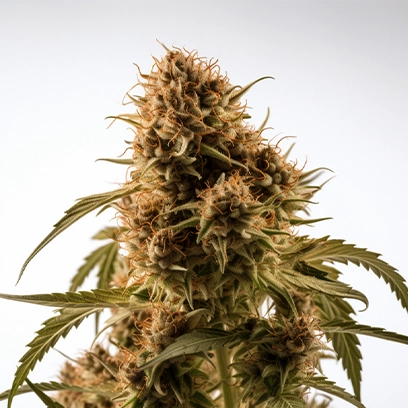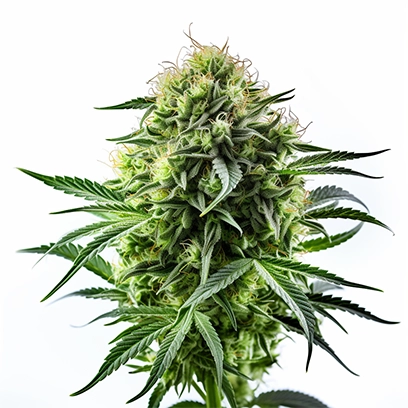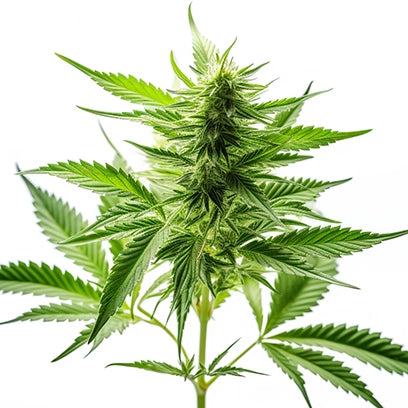CBN 101: A Beginner’s Guide To Cannabinol

CBN 101: What is CBN?
In our beginner's guide to CBN, we break down everything you need to know about the “Sleepy Cannabinoid” and why you should consider adding this powerful minor cannabinoid to your nighttime routine.
Basic Info:
Name: Cannabinol (CBN)
Used to Promote - Healthy Sleep, Recovery, Relaxation*
May Provide Support For - Insomnia, Pain, Inflammation, Discomfort, Stress*
Molecular Formula - C21H26O2
Endocannabinoid Receptors - CB1, CB2
Abstract: Research has suggested that CBN possesses highly sedative properties, which can help users fight insomnia and promote evening relaxation. Of all the minor cannabinoids, CBN has been shown to have the most potent sedative and relaxing effects, making it the cannabinoid of choice for bedtime usage. CBN is commonly found in higher doses in indica-related strains of cannabis and is theorized to be one of the reasons that consumers prefer indica strains to help ease insomnia. CBN has shown the ability to increase the amount of time spent in deep restorative sleep and reduce the time it takes to fall asleep. Additionally, CBN has been shown to reduce the time spent in the lighter stages of sleep, potentially leading to improved sleep quality.*
Origins: CBN was the first cannabinoid to be identified and isolated from cannabis by researchers at Cambridge University in 1899. It would be further isolated and stabilized in 1940 by researchers at the University of Illinois. Since then, research into the effects of CBN has grown, and it is now used as an ingredient in many products, such as tinctures, oils, and edibles. CBN is produced as the natural byproduct of the oxidative breakdown of THC and THCA in cannabis or hemp flower. It is found naturally in higher concentrations of hemp that have been aged or exposed to air and heat for extended periods. For commercialized usage, it can be extracted or further created from cannabis or hemp sources through oxidative degradation of THC and then introduced at higher levels to products to produce more profound effects. CBN is extremely stable even for long periods which is supported by the discovery of cannabis plant material which still contained high levels of the CBN in a tomb in Xinjiang-Uighur, China that dated back to 750 BC.* [1,2]

CBN's Studied Benefits:
Insomnia: Research has suggested that CBN possesses highly sedative properties, which can help users fight insomnia and promote evening relaxation. Of all the minor cannabinoids, CBN has been shown to have the most potent sedative and relaxing effects, making it the cannabinoid of choice for bedtime usage. CBN is commonly found in higher doses in indica-related strains of cannabis and is theorized to be one of the reasons that consumers prefer Indica strains to help ease insomnia. CBN has displayed the ability to increase the amount of time spent in deep, restorative sleep and reduce the time it takes to fall asleep. Additionally, CBN has been shown to reduce the time spent in the lighter stages of sleep, potentially leading to improved sleep quality.* [1,2,3,9]
Inflammation/Pain Management: Research suggests CBN may reduce physical discomfort and provide anti-inflammatory benefits. CBN interacts with the neurons involved with pain signaling and perception, helping to reduce the sensation of physical discomfort. While all cannabinoids reduce inflammation, none are as powerful as CBN against inflammatory response. Experiments have demonstrated that CBN inhibits T-cell immune responses; T-cells play a pivotal role in chronic inflammation, so down-regulating T-cell proliferation may further reduce inflammation. CBN helps to reduce the number of inflammation markers in the body, which can help reduce the pain associated with inflammation.* [4,10]
Stress/Anxiety Management: CBN has shown promise in helping to reduce stress and anxiety by its indirect actions on the same receptors in the brain as THC but without the psychoactive effects. CBN helps to reduce the amount of cortisol, a stress hormone released by the body. This method of action may help reduce the physical and mental symptoms of anxiety, such as headaches, insomnia, and muscle tension. Additionally, CBN has been shown to reduce inflammation markers in the body, which may also help reduce stress and anxiety.* [4,10]
Improving Airway Function / Reducing Allergy-Induced Asthma Symptoms: Studies show that when CBN was administered daily for three consecutive days before exposure to allergy and asthma triggers, there was a significant reduction in the elevation of immune response markers in the lungs that would normally be present during flare-ups of a respiratory allergic reaction or asthma attack. CBN usage also showed the ability to reduce the elevation of serum IgE and mucus overproduction in the lungs. These results suggest that CBN exhibits potential therapeutic utility in treating allergic airway disease by inhibiting the expression of critical T cell cytokines and the associated inflammatory response.* [5]
Antibiotic Properties: Cannabinol (CBN) has demonstrated significant promise as an antibiotic. Particularly effective against methicillin-resistant Staphylococcus aureus (MRSA), a type of bacteria notorious for its resistance to many standard antibiotics, CBN offers a potential new avenue for treating bacterial infections that are difficult to manage with current medications. Its ability to combat MRSA suggests it could be a valuable tool in the ongoing battle against antibiotic-resistant bacteria, highlighting the expanding understanding of the medicinal properties of compounds derived from cannabis.* [6]
Potential Treatment of Neuroblastoma: CBN was found to be effective in slowing down the growth, spread, and development of new blood vessels in neuroblastoma cells, a type of cancer cell. CBN has been shown to help block a pathway called AKT, which cancer cells often use to grow and spread and increase the levels of something called miR-34a, which targets and reduces the activity of a protein called E2F1. CBN shows promise in fighting against neuroblastoma development by controlling these specific genetic elements and proteins. This discovery highlights a new and important way CBN may act against this cancer.* [7]

How To Best Consume CBN:
Combining CBD and CBN:
CBD and CBN are both compounds that interact with the same receptors in the endocannabinoid system but with different physical reactions. When combined, the two compounds create a synergistic effect that can be more effective than either one alone. For example, when CBD and CBN are taken together, they can help reduce anxiety and promote relaxation more than either one alone. CBD and CBN can also help reduce inflammation and pain more effectively when taken together. This method of action is commonly known as the entourage effect. CBD and CBN are shown to have the strongest synergistic effect for inflammation and pain when consumed in a 1 to 1 ratio like in our Sleepy Bear 1/1 Gummies.* [4]
Types of Products:
CBN can be naturally extracted from hemp and then infused into a variety of finished products that can be consumed orally, such as gummies, tinctures, soft gels, or vapes. CBN's effects are best displayed when consumed in specialty products that utilize concentrated doses of pure CBN. CBN can safely be combined with other cannabinoids such as CBD or CBDA or even other nutraceuticals like melatonin for more powerful synergetic effects.
CBN Absorption:
CBN is naturally hydrophobic and, on its own, is poorly absorbed by the human body. One of the most effective ways to consume CBN is in products like our Sleepy Bear 1/1 gummies or our Sleepy Bear with Melatonin gummies, which feature our nanoemulsion technology for enhanced absorption. This greatly improves the bioavailability of CBN and other cannabinoids so you can feel their full therapeutic potential!
Full Spectrum Sources: CBN can also be found in trace amounts in full spectrum CBD distillate products, oils, tinctures, or gummies. However, these full spectrum products only contain small amounts of CBN and, therefore, are not concentrated enough to get the full benefits that CBN can offer. CBN can also be found in certain strains of cannabis flower. CBN is usually found in indica leaning strains helping to give them their reputation for evening relaxation.
CBN Safety: CBN is widely considered safe and nonintoxicating when taken alone or with CBD. During human ingestion studies of CBN, no changes occurred on test subjects' electrocardiogram, blood pressure, or body temperature measurements. Subjects receiving CBN treatments also showed no significant negative changes on other items, which included items on perception, emotion, cognition, and sociability. On a 66-item adjective-pair drug reaction scale, no volunteers reported feeling drugged, drunk, dizzy, or drowsy when consuming CBN.* [8]
CBN and THC: It appears that when taken together, CBN may increase the effect of delta9-THC on some aspects of physiological and psychological processes. CBN has been shown to increase the sedative and relaxing effects of THC. Other effects are minimal and not considered to make a significant difference in the overall expression of THC's effects.* [8]
*It's important to note that research into CBN is ongoing, and many of these effects are based on preliminary studies. Further research is needed to understand the scope and mechanisms of CBN's actions fully. Claims made based on research describing the benefits, performance, and efficacy of CBD and other cannabinoids are based on the expertise of relevant professionals and public research. Individual results may vary, no results are guaranteed. No information provided by Sleepy Bear is medical advice.
Frequently Asked Questions About CBN!
How can you take CBN?
CBN can be taken in various ways, including orally, topically, or through inhalation. It can be taken in the form of oils, tinctures,edibles, and topical creams. Additionally, it can be taken as inhalable vapor or smoke from cannabis flower.
Is CBN safe?
CBN is considered to be safe to use and is generally well-tolerated. However, it is important to speak to a doctor before taking anynew supplements or medications, including CBN. Additionally, it is important to be aware of any potential drug interactions.
Does CBN get me high?
No, CBN does not get you high. It interacts with the same receptors in the brain as THC, but without the psychoactive effects. It has been shown to help reduce anxiety, improve sleep quality, and reduce inflammation and pain, without the feeling of being“high.”
Will CBN make me fail a drug test?
Drug tests typically look for the presence of THC, not CBN. However, it is important to be aware of any potential drug interactionswhen taking CBN. CBN can possibly but rarely cause a false positive on lower-quality drug tests. It is recommended to consult the testing authority prior to taking CBN.
Is CBN addictive?
No, CBN is not addictive. It does not produce the same psychoactive effects as THC and does not have the potential for abuse or dependence.
Shop our CBN Products!
Learn About All Our Ingredients
References
1. Cannabinol - an overview:
ScienceDirect. (n.d.). Cannabinol - an overview. Retrieved from https://www.sciencedirect.com/topics/neuroscience/cannabinol
2. Cannabinol: History, Syntheses, and Biological Profile of the Greatest “Minor” Cannabinoid:
Maioli, C., Mattoteia, D., Amin, H. I. M., Minassi, A., & Caprioglio, D. (2022). Cannabinol: History, Syntheses, and Biological Profile of the Greatest “Minor” Cannabinoid. Plants, 11(21), 2896. https://doi.org/10.3390/plants11212896
3. A double-blind, randomized, placebo-controlled study of the safety and effects of CBN with and without CBD on sleep quality:
Bonn-Miller, M. O., Feldner, M. T., Bynion, T. M., Eglit, G. M. L., Brunstetter, M., Kalaba, M., Zvorsky, I., Peters, E. N., & Hennesy, M. (2023). A double-blind, randomized, placebo-controlled study of the safety and effects of CBN with and without CBD on sleep quality.Experimental and Clinical Psychopharmacology.Advance online publication. https://doi.org/10.1037/pha0000682
4. Cannabidiol, cannabinol and their combinations act as peripheral analgesics in a rat model of myofascial pain:
Wong, H., & Cairns, B. E. (2019). Cannabidiol, cannabinol and their combinations act as peripheral analgesics in a rat model of myofascial pain. Archives of Oral Biology, 104, 33-39. https://doi.org/10.1016/j.archoralbio.2019.05.028
5. Attenuation of the ovalbumin-induced allergic airway response by cannabinoid treatment in A/J mice:
Jan, T.-R., Farraj, A. K., Harkema, J. R., & Kaminski, N. E. (2003). Attenuation of the ovalbumin-induced allergic airway response by cannabinoid treatment in A/J mice. Toxicology and Applied Pharmacology, 188(1), 24-35. https://pubmed.ncbi.nlm.nih.gov/12668119/


